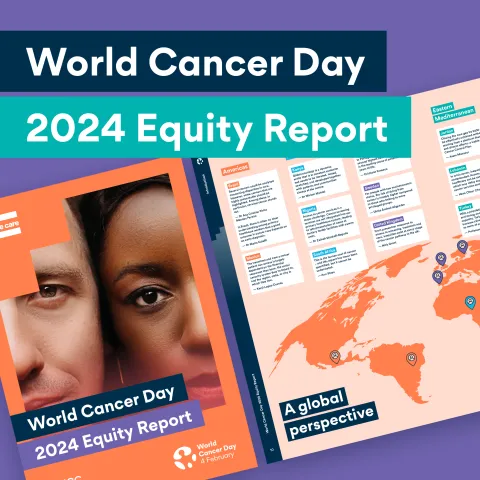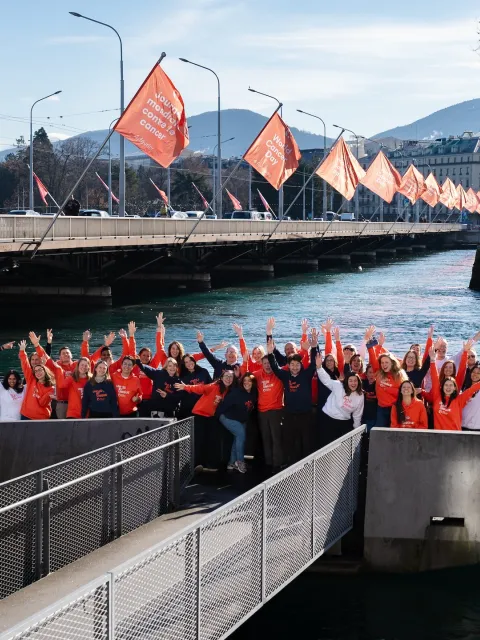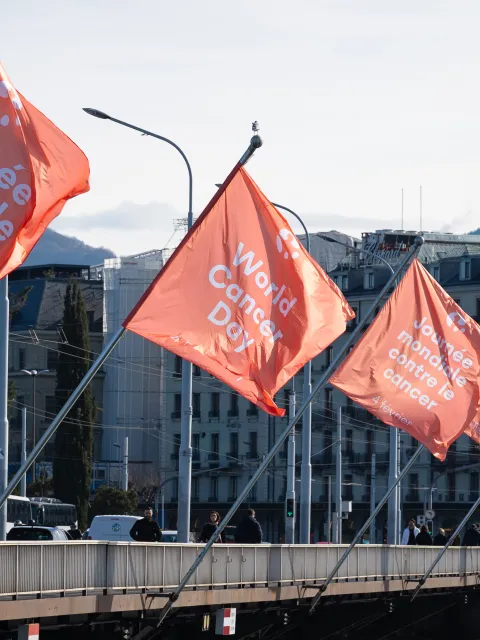This World Cancer Day, UICC issues a call to action and offers actionable recommendations to close the care gap
Ahead of World Cancer Day on 4 February, UICC is issuing a global call to action and has released its World Cancer Day 2024 Equity Report, offering actionable insights from global cancer leaders and outlining recommendations for governments to address the care gap.

HIGHLIGHTS
-
UICC's global call to action urges individuals to write to their respective health authorities, with nine recommendations, adaptable to local contexts, to address the disparities in the availability, accessibility and affordability of cancer services.
-
These recommendations focus on patient-centric care, research funding, cancer registries, national cancer strategies, health coverage, health literacy, regulation of carcinogenic products, screening programs, and addressing social determinants of health, all aimed at ensuring equitable access to cancer care.
-
They are also detailed in the World Cancer Day 2024 Equity Report, which features local insights and experiences from past and current members of UICC's Board of Directors.
The World Cancer Day ‘Close the Care Gap' campaign highlights the significant inequities that persist across the globe in the availability of and access to essential cancer services.
To mark the third and final year of the campaign, UICC has organised a global call to action to urge national cancer organisations and citizens to advocate for equitable healthcare by contacting their respective health ministries.
JOIN THE WORLD CANCER DAY GLOBAL CALL TO ACTION
The call to action offers nine recommendations to close care gap. These are also included in UICC’s World Cancer Day 2024 Equity Report, released today ahead of World Cancer Day on 4 February. The report provides local perspectives and experiences on inequities in cancer care in regions around the world from past and current members of UICC’s Board of Directors, as well as expert recommendations on how to address them.
“UICC’s World Cancer Day 2024 Equity Report shines a light on the barriers to care and significant disparities in outcomes due to prejudices and assumptions based on socioeconomic status, gender and other cultural norms, race and ethnicity, age, geographical location, sexual orientation and disability. More importantly, it provides local insights into the challenges we face in diverse regions, guiding us toward targeted solutions.”
– Prof. Jeff Dunn AO, President of UICC.
In particular, the report includes insights and perspectives from cancer leaders in Australia, Brazil, China, Hong Kong, Kenya, Lebanon, Japan, Jordan, India, Malaysia, Mexico, Nigeria, Portugal, South Africa, Sweden, Turkey and the UK.
The different sections in the report offer guidelines to close the care gap tailored to that country or region.
The nine recommendations outlined in the report and contained in the global call to action, on the other hand, are crafted to serve as a universal blueprint, adaptable to the specific needs and capacities of individual countries.
These recommendations call for enhancing patient-centric care, increasing up cancer research funding, establishing cancer registries and formulating inclusive national cancer strategies. Additionally, they advocate for the inclusion of cancer services in health coverage, boosting health literacy, regulating the sale of carcinogenic products such as tobacco, alcohol and ultra-processed foods, and implementing widespread screening programmes. Finally, countries are urged addressing the systemic social determinants of health that hinder equitable access to cancer care.
“For people with low socioeconomic status, the risk of dying from cancer is generally notably higher compared to those who belong to more privileged groups. People with higher education generally spend more time with healthcare professionals to ask questions when seeking care than those with only primary school education, who are more likely to refrain from care-seeking in the first place. Socioeconomic status can also influence the degree to which a cancer patient is likely to follow through on treatment.”
– Ulrika Årehed Kågström, Secretary-General of the Swedish Cancer Society and President-elect of UICC
DOWNLOAD THE WORLD CANCER DAY 2024 EQUITY REPORT
UICC has also sent a letter to all Heads of State and Government through their missions in Geneva, Switzerland, inviting them to seize the opportunity presented by World Cancer Day on 4 February to make a public commitment or announcement aimed at improving equity in health and cancer care in their nation. Such actions by governments on World Cancer Day in the past have served as pivotal moments for positive change.
Last update
Thursday 01 February 2024
